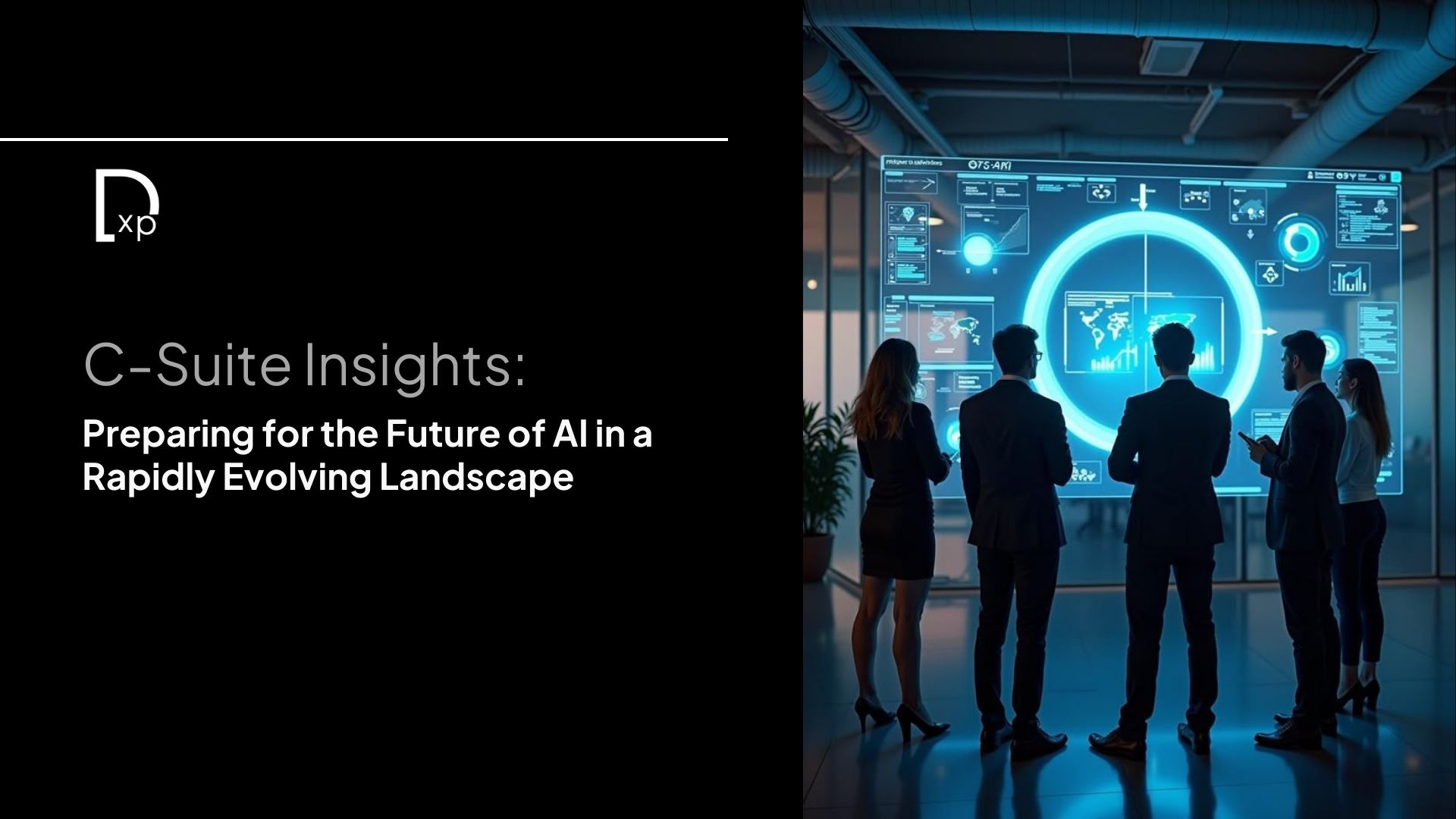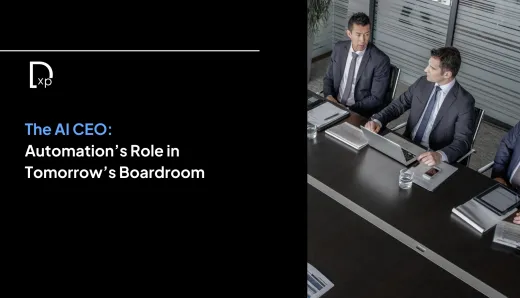C-Suite Insights: Preparing for the Future of AI in a Rapidly Evolving Landscape

Artificial intelligence (AI) has emerged as a transformative force, reshaping industries, redefining workflows, and challenging traditional leadership paradigms. For C-suite executives, the future of AI is not merely a technological evolution but a strategic imperative that demands foresight, agility, and innovation. As we navigate 2025, the rapidly evolving AI landscape presents both opportunities and challenges that require proactive preparation.
The Strategic Imperative of AI Integration
The future of AI is intertwined with business strategy. AI is no longer an auxiliary tool; it is central to decision-making, operational efficiency, and competitive advantage. Gartner predicts that by 2025, 35% of large organizations will appoint Chief AI Officers to oversee AI governance and integration into core business strategies. This shift underscores the importance of leadership alignment in harnessing AI’s potential.
For C-suite executives, integrating AI into their strategic vision involves more than adopting new technologies. It requires rethinking workflows to align with AI capabilities. Research shows that companies that redesign workflows around AI report significantly higher financial returns compared to those that merely layer AI onto existing processes5. This highlights the need for transformational leadership to drive value creation in the future of AI.
Navigating Organizational Challenges
Despite its promise, the adoption of AI has sparked division within organizations. A recent survey revealed that 42% of C-suite executives believe generative AI adoption is tearing their companies apart due to misalignment between departments and conflicting priorities. Tensions between IT teams and other business units are particularly pronounced, with 68% of executives reporting friction over AI implementation strategies.
These challenges underscore the importance of fostering cross-departmental collaboration. Successful organizations prioritize a people-first approach by appointing AI champions and developing comprehensive strategies that bridge gaps between leadership and employees. For the C-suite, addressing these divisions is critical to ensuring smooth adoption and maximizing the benefits of the future of AI.
Workforce Transformation in an AI-Driven Economy
One of the most profound impacts of the future of AI is its effect on employment. A global survey revealed that 41% of executives expect workforce reductions due to increased reliance on AI technologies1. While this trend raises concerns about job displacement, it also presents opportunities for reskilling and upskilling employees to collaborate effectively with AI systems.
C-suite leaders must champion workforce transformation by investing in education and training programs that prepare employees for new roles in an AI-driven economy. Ethical considerations also play a pivotal role in this transition. Transparent communication about how AI will impact jobs and workflows can mitigate resistance and build trust among employees3. The future of AI demands leaders who can balance technological advancement with human-centric approaches.
Democratization and Accessibility of AI Tools
The democratization of AI tools is reshaping the competitive landscape. By 2025, small businesses will have unprecedented access to cutting-edge technologies, enabling them to compete with larger enterprises. This trend is driven by advancements in generative AI platforms that allow users to create personalized experiences and innovative solutions effortlessly.
For C-suite executives, this democratization represents both an opportunity and a challenge. On one hand, it empowers organizations to innovate rapidly; on the other hand, it intensifies competition by lowering barriers to entry for startups. Strategic investments in proprietary technologies and unique value propositions will be essential for maintaining a competitive edge in the future of AI.
Ethical Governance: A Cornerstone for Success
As AI becomes integral to business operations, ethical governance has emerged as a critical differentiator. Global regulatory frameworks are expanding to ensure transparency, accountability, and fairness in AI applications2. For C-suite leaders, prioritizing ethical practices is not only a moral obligation but also a strategic necessity for building trust with stakeholders.
Ethical governance involves establishing clear parameters for autonomous decision-making systems and ensuring unbiased outcomes9. It also requires addressing data privacy concerns and safeguarding against potential misuse of AI technologies. In the future of AI, companies that prioritize ethical considerations will be better positioned to navigate regulatory challenges and foster long-term growth.
The Role of Leadership in Driving Innovation
Leadership plays a pivotal role in unlocking the full potential of AI. Studies show that CEO involvement in AI governance correlates strongly with positive financial outcomes. Transformational leaders who actively participate in shaping policies and procedures can drive innovation while ensuring responsible adoption.
Moreover, fostering an agile organizational culture is essential for adapting to rapid changes in the AI landscape. By embracing experimentation and encouraging collaboration across departments, C-suite executives can position their organizations as pioneers in the future of AI.
Preparing for Unforeseen Challenges
The future of AI is not without risks. Overinvestment in unproven technologies or misalignment between business needs and technological capabilities can lead to setbacks. Additionally, high electricity demands from data centers pose environmental challenges that require sustainable solutions7.
To prepare for unforeseen challenges, C-suite leaders must adopt a proactive approach to risk management. Predictive analytics powered by machine learning can help identify potential threats and develop mitigation strategies6. By staying ahead of emerging trends and anticipating disruptions, executives can safeguard their organizations against volatility.
Collaboration as a Catalyst for Success
Collaboration among C-suite leaders is vital for navigating the complexities of the future of AI. Integrating diverse perspectives from CEOs, CIOs, CTOs, and Chief AI Officers can enhance decision-making processes and drive strategic success. Collaborative platforms powered by generative AI further facilitate seamless communication among leaders.
In addition to internal collaboration, partnerships with external stakeholders such as technology providers and regulatory bodies can accelerate innovation. Building ecosystems that foster knowledge sharing and co-creation will be instrumental in shaping the future of AI.
Conclusion: Embracing Change with Confidence
The future of AI represents both an opportunity and a challenge for C-suite executives. By integrating AI into core strategies, addressing organizational divisions, transforming workforces, prioritizing ethical governance, driving innovation through leadership involvement, preparing for risks, and fostering collaboration, leaders can position their organizations for sustained success.
As we move forward into this rapidly evolving landscape, one thing remains clear: the future of AI demands visionary leadership that embraces change with confidence while remaining grounded in ethical principles. For those at the helm of enterprises navigating this transformation, preparation today will define success tomorrow.




